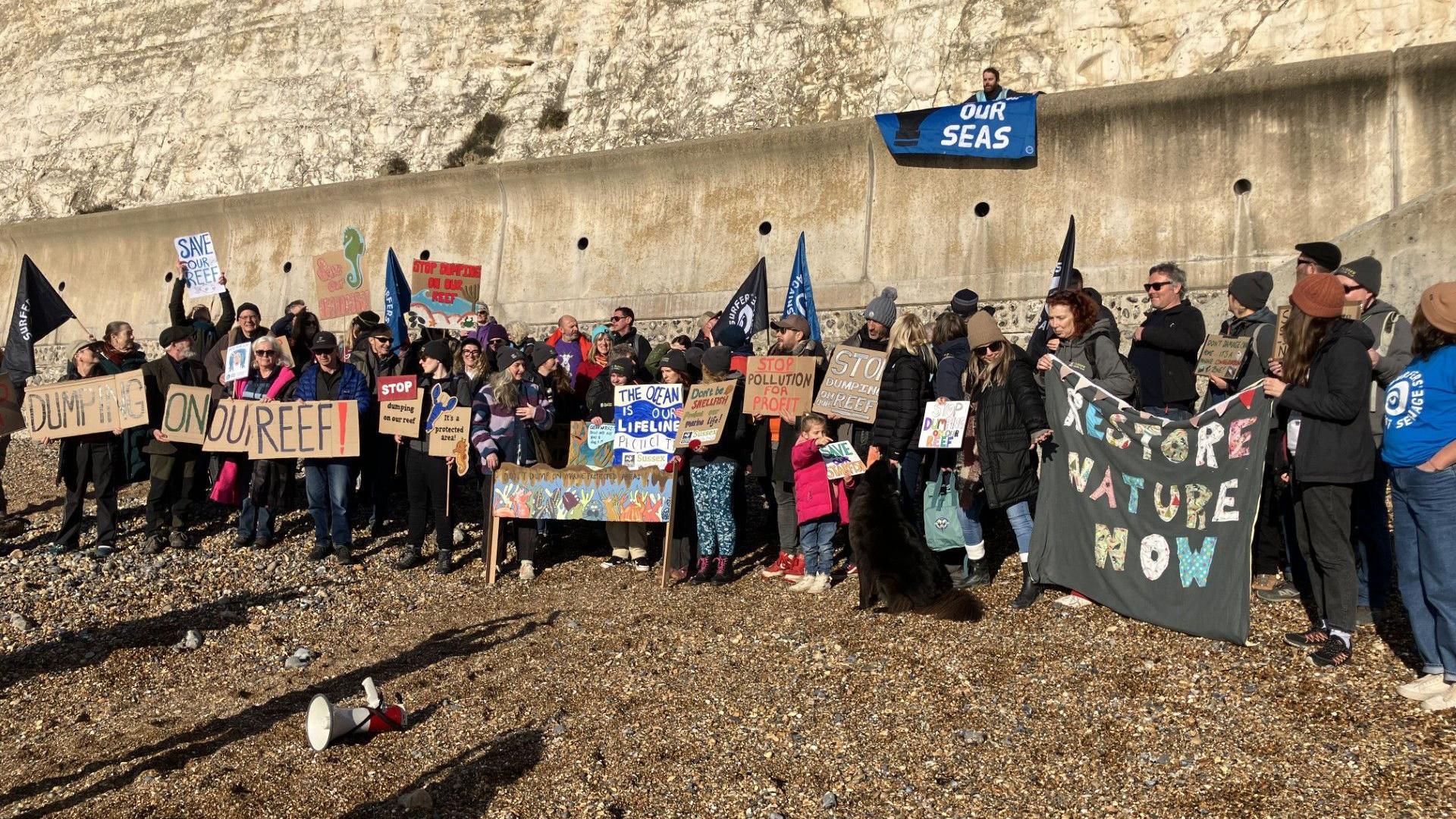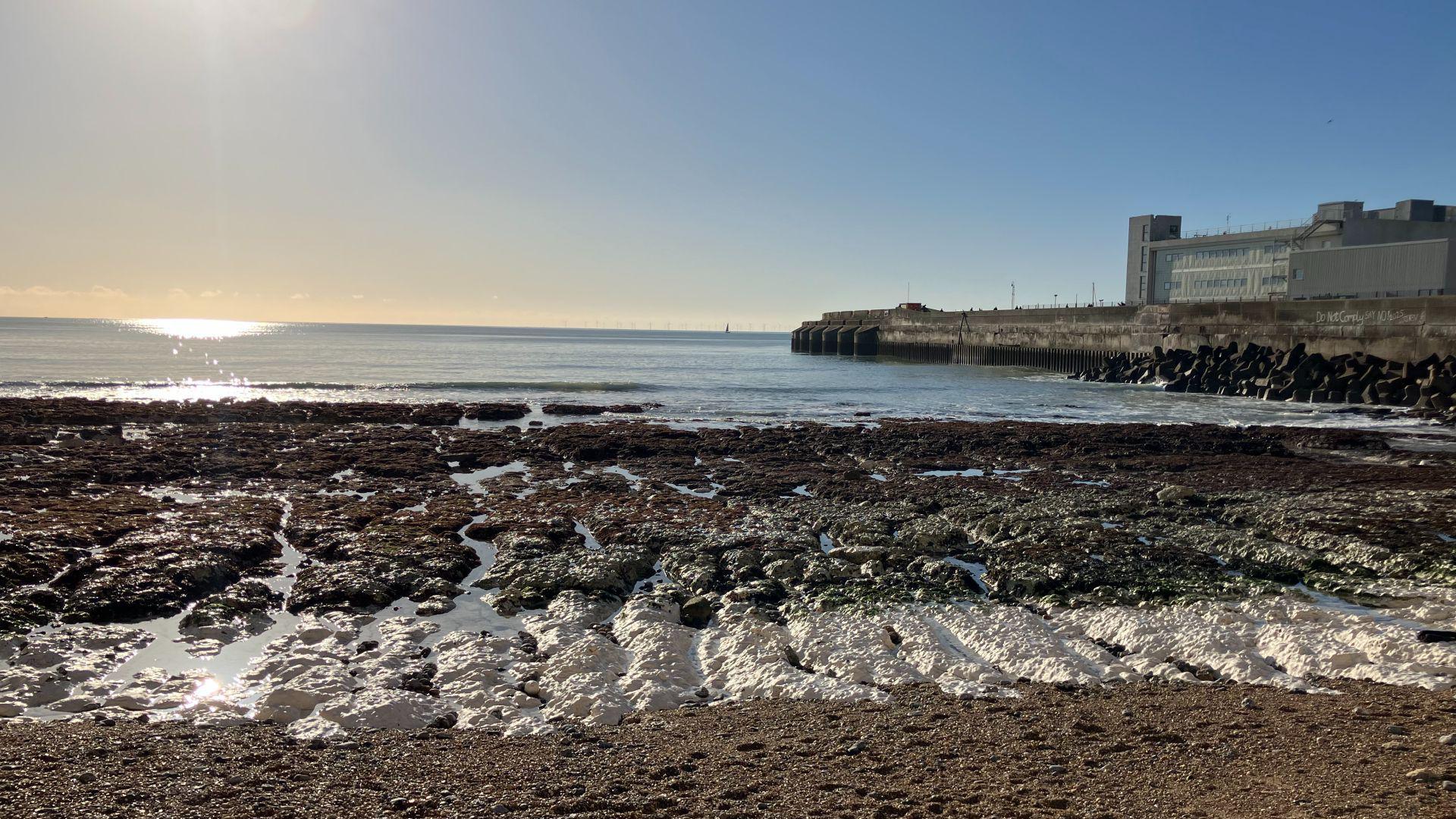Protests in Brighton over 'toxic sludge' in sea

People gathered at a beach near the Brighton Marina
- Published
Campaigners have protested to try and stop what they say are harmful sediments being dumped into a protected marine conservation zone.
Surfers Against Sewage (SAS) and the Sussex Wildlife Trust oppose the renewal of a license allowing Brighton Marina to dispose of dredged sediment at a site in Rottingdean, sitting in the Beachy Head West Marine Conservation Zone.
SAS member Atlanta Cook told the BBC material from dredging fills nearby rock pools with a "black, thick, slimy, petrochemically smelling sludge", which she claimed harms the environment and people.
Premier Marinas, which owns Brighton Marina, says dredging is an "ongoing" need and remains an obligation under the terms of its lease.
'We need a better solution'
"Dredging involves the removal of natural silts which settle within the marina basin each year to maintain depth and ensure safe navigation for all vessels," a Premier Marinas spokesperson said.
"Dredged silt is regularly sampled to confirm it is not harmful to the environment."
Chris Ward, MP for Brighton Kemptown and Peacehaven, told the BBC: "No one was against dredging, but they are against disposal at the site in Rottingdean."
"We need... a better disposal site and a better solution that protects residents and wildlife," he continued.

Campaigners say local rock pools fill with sludge after dredging
A 2013 government report, external said the Beachy Head West Marine Conservation Zone contains some of the best examples of chalk habitat in the South East region.
It said the site supports specialised communities of animals, seaweeds and the rare short-snouted seahorse.
Marine Management Organisation is expected to make a decision in the next few months on whether the dredging licence will be renewed for another 10 years.
Follow BBC Sussex on Facebook, external, X, external, and Instagram, external. Send your story ideas to southeasttoday@bbc.co.uk, external or WhatsApp us on 08081 002250.